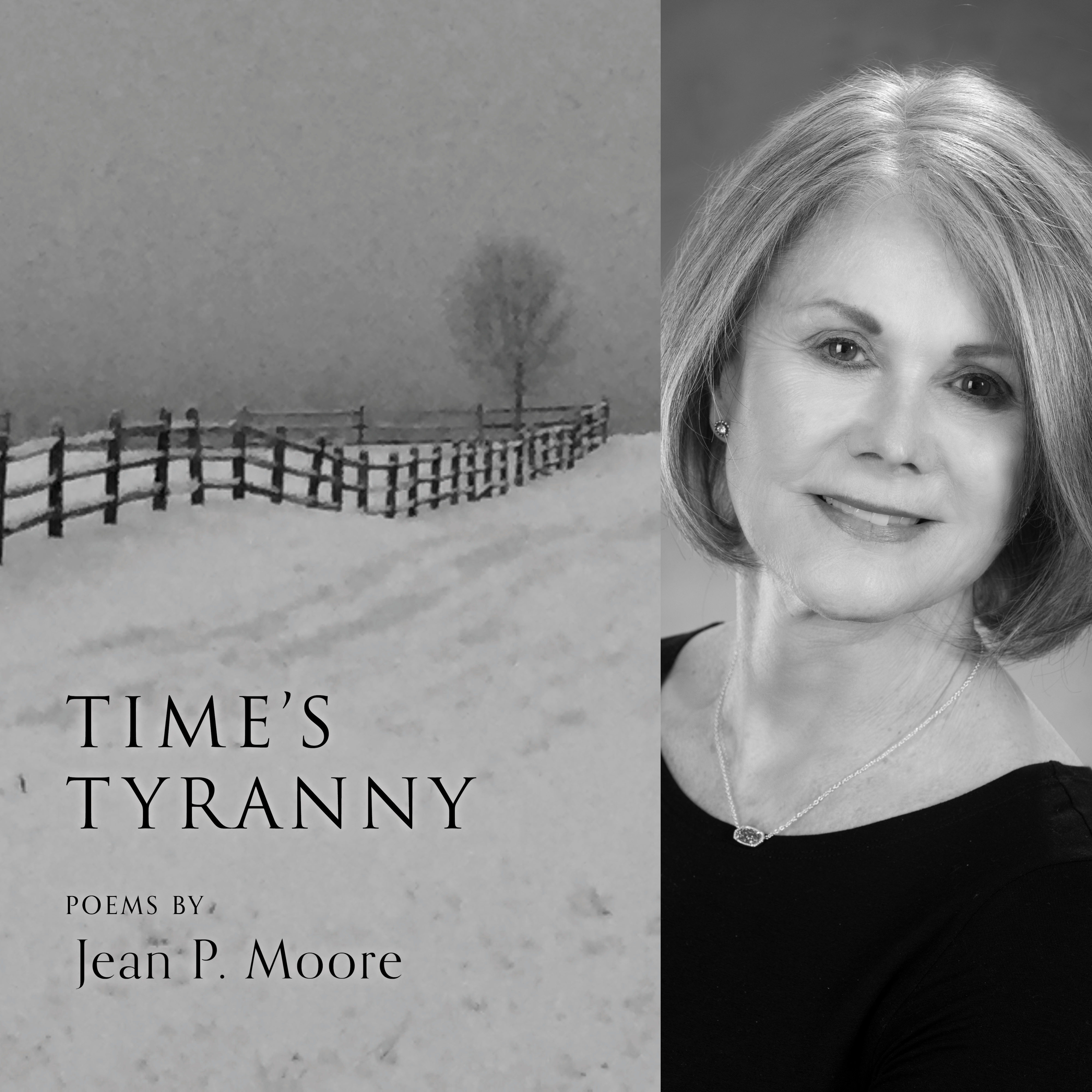Jean P. Moore’s first book of poems immediately establishes her as a poet of authority and delicacy. Her range, command, and subtlety conjure some aspects of Robert Frost, or Jean Valentine, or Elizabeth Bishop; she combines in perfect balance a lyric gift with a meditative inclination. Time’s Tyranny is a book of memory and swift reckonings, but also a book incarnating the immanent now—a crow seen on a hike; lovers hearing the toll of cowbells; the sudden stop of an Italian train. Moore’s work is simultaneously sensual and astringent—open equally to a sky “crisp and cloud-clear” and to the “deep mud of mangled spring.” The directness, vitality, and economy here bespeak a seasoned, sifting mind—and a poet perpetually open to what Keats called “ceaseless wonders,” under the sign of mortality. Registering creatures “whose only greed is for life,” Moore writes poems filled with crows, dragonflies, babies, mountains, rivers, sugar maples: “A bureaucratic robin sits atop/the blossomed cherry tree.” (Everything about her wit and aphoristic inclinations hums in that “bureaucratic.”) Yet Moore is especially attuned to what Wordsworth called “the still, sad music of humanity.” Here are poems addressing physical injury, a family leaving Aleppo, the history of writers killed or suicided; here too are funny, wise, sexy poems about adult marriage. Moore refuses anything showy and arrows her way straight to the heart of things through what one comes to realize is a dazzling array of forms—a beautiful sonnet, a roundeau, delicate songs, a salute to immigrant ancestors (“I Don’t Know You”)—all drawing on a common yet profound register of contemporary American English. These poems emerge from a life lived, pondered, embraced, observed, and questioned: “Who is that woman in my yard/image seared upon a page?” Time’s Tyranny gives us a thinker, a woman, a lover, a grandmother, a citizen—above all, a fully formed poetic sensibility.
–Maureen N. McLane, New York University, author of This Blue, the National Book Award Finalist in Poetry, My Poets, and Some Say.
In Jean P. Moore’s wise and lovely collection we experience both the tyranny and the magic of time, which, Moore reminds us, is infused with our human memory. Landscape is the canvas on which memory and Moore paint. Her lyrical voice gives us history, family, lovers. Above all Moore gives us a humble yet grand gratitude for even the smallest sensual detail since “everything’s a sacrament.”
–Judith Baumel, author of The Kangaroo Girl.






Reviews
There are no reviews yet.